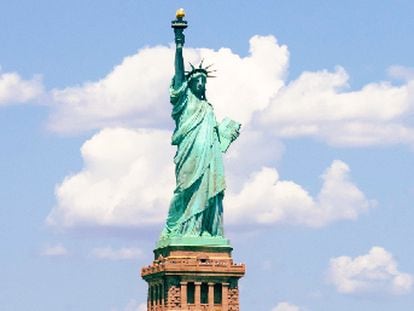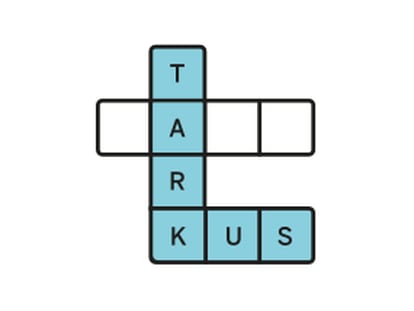Cable acerca de los diferentes enfoques sobre derechos humanos en Cuba
La mayoría de los países acreditados en La Habana, fundamentalmente los latinoamericanos y africanos, China y Rusia, renuncian a pedir al Gobierno cubano conversaciones sobre derechos humanos
| ID: | 236391 |
| Date: | 2009-11-24 13:33:00 |
| Origin: | 09HAVANA706 |
| Source: | US Interests Section Havana |
| Classification: | CONFIDENTIAL |
| Dunno: | 09HAVANA592 09HAVANA619 09VATICAN117 |
| Destination: | VZCZCXRO7150 PP RUEHAG RUEHROV RUEHSL RUEHSR DE RUEHUB #0706/01 3281333 ZNY CCCCC ZZH P 241333Z NOV 09 FM USINT HAVANA TO RUEHC/SECSTATE WASHDC PRIORITY 4943 INFO RUCNMEM/EU MEMBER STATES COLLECTIVE PRIORITY RUCNMEM/EU MEMBER STATES COLLECTIVE PRIORITY RUEHWH/WESTERN HEMISPHERIC AFFAIRS DIPL POSTS PRIORITY RUEHBY/AMEMBASSY CANBERRA PRIORITY 0005 RUEHVT/AMEMBASSY VALLETTA PRIORITY RUEHROV/AMEMBASSY VATICAN PRIORITY 0160 RUCOWCV/CCGDSEVEN MIAMI FL PRIORITY RUEAIIA/CIA WASHINGTON DC PRIORITY RUEHBS/USEU BRUSSELS PRIORITY RHEHAAA/NATIONAL SECURITY COUNCIL WASHINGTON DC PRIORITY RUCOGCA/COMNAVBASE GUANTANAMO BAY CU PRIORITY RHMFISS/HQ USSOUTHCOM MIAMI FL PRIORITY RHMFISS/JOINT STAFF WASHINGTON DC PRIORITY RHEFDIA/DIA WASHINGTON DC PRIORITY RHEHNSC/WHITE HOUSE NSC WASHINGTON DC |
C O N F I D E N T I A L SECTION 01 OF 03 HAVANA 000706 SIPDIS STATE FOR WHA/CCA STATE FOR DRL CNEWLING E.O. 12958: DECL: 10/23/2019 TAGS: PREL, PHUM, PGOV, CU SUBJECT: FEISTY LITTLE MISSIONS DENT CUBA'S RECORD OF BULLYING OTHERS TO SILENCE ON HUMAN RIGHTS REF: A. HAVANA 619 (RECOMMENDATIONS FOR SPECIAL RAPPORTEUR) B. HAVANA 592 (GOC SIGNALS "READINESS TO MOVE FORWARD") C. VATICAN 117 ("VATICAN TWO-STEP WITH CUBA") HAVANA 00000706 001.3 OF 003 Classified By: Poloff Joaquin F. Monserrate for reasons 1.4 (b) and (d) 1. (C) Summary. The Cuban Government has been able to stonewall its independent civil society from foreign visitors who have, for the large part, been all too ready to give in to Cuban bullying and give up on these encounters. A series of recent visits has shown the different approaches that foreign governments have taken to highlight, or not, Cuba's sorry human rights record. The Asutralian Foreign Minister, Switzerland's Human Rights Special Envoy and the Canadian Cabinet-level Minister of the Americas not only failed to meet with non-government Cubans, they didn't even bother to publicly call for more freedoms after visiting Cuba in November. Though also shunning NGOs, recent emissaries from the Vatican and the EU, at least called out publicly for greater rights. Some holdouts remain, refusing to bring anyone of note if the Cubans insist on conditioning access. Regardless of the approach, the result tends to be the same. There is little of substance to be gained from a "friends-at-all-costs" approach to Cuba. End Summary. THE "BEST-FRIENDS-FOREVER" APPROACH: DO, SAY NOTHING --------------------------------------------- ------- 2. (C) Practitioners of this approach to Cuba include most countries, including all Latin Americans and Africans, Russians and Chinese, and many Europeans. The Brazilian Polcouns in Havana best summed up this style: "We don't raise (human rights) in public or private." No wonder, the U.K. number-two in Havana grumbled, that "Cuba would love nothing more than to have the same relationship with us that they have with Brazil." Most of these countries would not raise human rights even if the Government of Cuba (GOC) did not object to them doing so. This group apparently now includes the Swiss and Australians. 3. (C) The Swiss Human Rights Special Envoy Rudolf Knoblauch met with his Cuban counterparts on November 12, government-organized groups (GONGOs) and the Catholic Cardinal. He did not meet with civil society leaders nor make any public reference to Cuba's human rights record ("not the Swiss way to do things," they told us). More surprisingly, however, the Swiss admitted that Knoblauch did not raise Cuba's human rights situation in private. As part of the "Periodic Review," under their bilateral Dialogue, the Swiss and the Cubans discussed multilateral human rights issues, such as accession to international conventions and the UNCHR, but did not touch upon Cuba's political prisoners, access to prisons or the still-unscheduled visit of the United Nations Special Rapporteur on Torture (Ref A). They invited Cuban officials to tour Swiss jails, something the Swiss said "had worked" in their relations with Vietnam. 4. (C) Australian Foreign Minister Stephen Smith met with Cuba's Vice President Jose Ramon Machado and Foreign Minister Bruno Rodriguez on November 23. According to Australian press reports, Smith said how "pleased" he was with Australia-Cuba relations and praised bilateral "friendship and cooperation," while Rodriguez thanked Australia for its support against the U.S. embargo at the United Nations, the Cuban press reported. Nothing was said in public about political or economic reforms, or human rights. THE "KEEP-IT-PRIVATE" APPROACH: SAY NOTHING PUBLICLY --------------------------------------------- ------ 5. (C) It is hard to gauge how many countries really bring up HAVANA 00000706 002.3 OF 003 the tough subjects when they meet in private with the Cubans, but many claim to do so. Although nothing of substance stops visitors from engaging with civil society quietly (the way, for instance, we managed to do with our U.S. visitors in September, Ref B), most countries opt to shun meetings altogether, bowing to Cuban pressure. Spain falls mostly in this group, although to their credit, Foreign Minister Moratinos spoke of the need for "gestures" after his meetings here in September. Canada laid a claim on this group after the November visit of Americas Minister Peter Kent. 6. (C) The Canadians also failed to meet with the independent civil society or make public pronouncements after the visit of Minister Kent. This was surprising, since Kent and Prime Minister Harper had been publicly critical of Cuba's human rights record, something that led the GOC to cancel Kent's visit last April. Canadian officials in Havana told us that Kent raised the issue of Cuba's political prisoners but that the GOC had immediately turned the discussion into one of definitions. (Note: The GOC claims all of its prisoners of conscience are common criminals. Its stock answer to the topic is to deny it holds political prisoners.) It's an interesting debate, our Canadian counterparts claimed, "If someone takes money from the U.S., does that make him a political prisoner?" 7. (C) In his meetings with Cuban Foreign Minister Bruno Rodriguez, Kent reportedly asked also about the visit of the Special Rapporteur, but again the Cubans changed the subject. "How many Rapporteur visits has Canada had?," Rodriguez was said to have shot back. Kent left town saying little, a style that "works better for the (GOC)," our northerly neighbors assured us. THE "WE-RESPECTFULLY-DISAGREE" APPROACH: GOING PUBLIC --------------------------------------------- -------- 8. (C) The missions that air their concerns publicly are in the minority. Although the official press ignores it, the GOC frowns upon these utterances and often acts offended. Countries that go public usually also meet with civil society, but others don't. Outspoken visitors sometimes step out of their missions' carefully managed talking points, as was apparently the case, for instance, of the latest high-level visitors to Cuba from the European Union and the Holy See. 9. (C) The EU Commission in Havana sits snuggly in the "Best-Friends-Forever" camp. Their functionaries share with us their reproach of the "radical" Swedes and Czechs, with their human rights priorities, and can't wait for "moderate" Spain to take over the EU Presidency. The former Development Commissioner, Louis Michel, keenly followed that line during his visits to Cuba. Not so his successor. 10. (C) On an early November visit to Cuba, the Belgian Karel de Gucht put aside Cuban equivocations and declared that "there is a set of fundamental rights that are universal," and called on Cuba to "create the right conditions" to enact these rights. In respectful tones and emphasizing that the EU was not after "regime change," De Gucht put the GOC on notice that, if it did not begin to improve its human rights record, it could give up any hope of normalizing relations with the EU. Despite this, in a November 23 interview with CNN, de Gucht seemed to soften this line and called for normalization without demanding prior gestures from Cuba. 11. (C) The Vatican's Social Communications Council President Archbishop Claudio Cello, a grizzled veteran of China-Vatican negotiations, also mixed praise with tough love. Originally calling on the GOC to allow further radio access to Cuban churches, Celli went off script, and called on greater information and internet access for all Cubans. He even HAVANA 00000706 003.3 OF 003 singled out Cuba's blogger community for praise, something the GOC "didn't like at all," according to Holy See diplomats in Havana (leading Celli to "clarify" his comments upon his return to Rome). THE "TAKE-YOUR-VISIT-AND-SHOVE-IT" APPROACH: LITTLE LOST --------------------------------------------- ----------- 12. (C) Some countries refuse to let the GOC dictate to them when it comes to visitors. Although they will accommodate GOC petulancy by hosting dual national day ceremonies (and spare Cuban officials the "affront" of sharing space with Cubans it deems unworthy) and cordon off their ambassadors from civil society engagement, the holdout countries resist pressure to disengage from civil society altogether. In many cases they have chosen to keep their principals at home if the price is kowtowing to the GOC. Germany, the Czech Republic and the United Kingdom may pay a price in terms of lost business and access from their principled stance. Others who stand in this camp have less to lose from sticking it to the Cubans, and include Poland and Sweden. 13. (C) In November, the Ambassador for the Order of Malta (a Catholic church NGO given diplomatic status by the GOC) took the "take-it-and-shove" it approach to new heights. After the GOC told him that he could only bring in the Belgian Ambassador (firmly in the "BFF" camp) but not the USINT Chief of Mission to a humanitarian event he was organizing at a leper hospital, he cancelled the event and left town. 14. (C) COMMENT. The Cuba overwhelming majority of the 100 foreign missions in Havana do not face a human rights dilemma in their dealings with the Cubans. These countries wouldn't raise the issue anyway. The rest, a group that includes most of Europe, Canada, Australia, Japan and the United States, claim to employ different approaches to address their human rights concerns in Cuba -- but the truth is that most of these countries do not press the issue at all in Cuba. The GOC does not like to talk about its human rights situation, and even less to be lectured publicly. It deploys considerable resources to bluff and bully many missions and their visitors into silence. For the most part the rewards for acquiescing to GOC demands are risible: pomp-full dinners and meetings and, for the most pliant, a photo-op with one of the Castro brothers. In terms of substance or economic benefits, they fare little better than those who stand up to the GOC. FARRAR |
Traduce este documento »
Traducción automática. Puede que el texto traducido no sea fiel al original
Únete a EL PAÍS para seguir toda la actualidad y leer sin límites.
Suscríbete_










































































